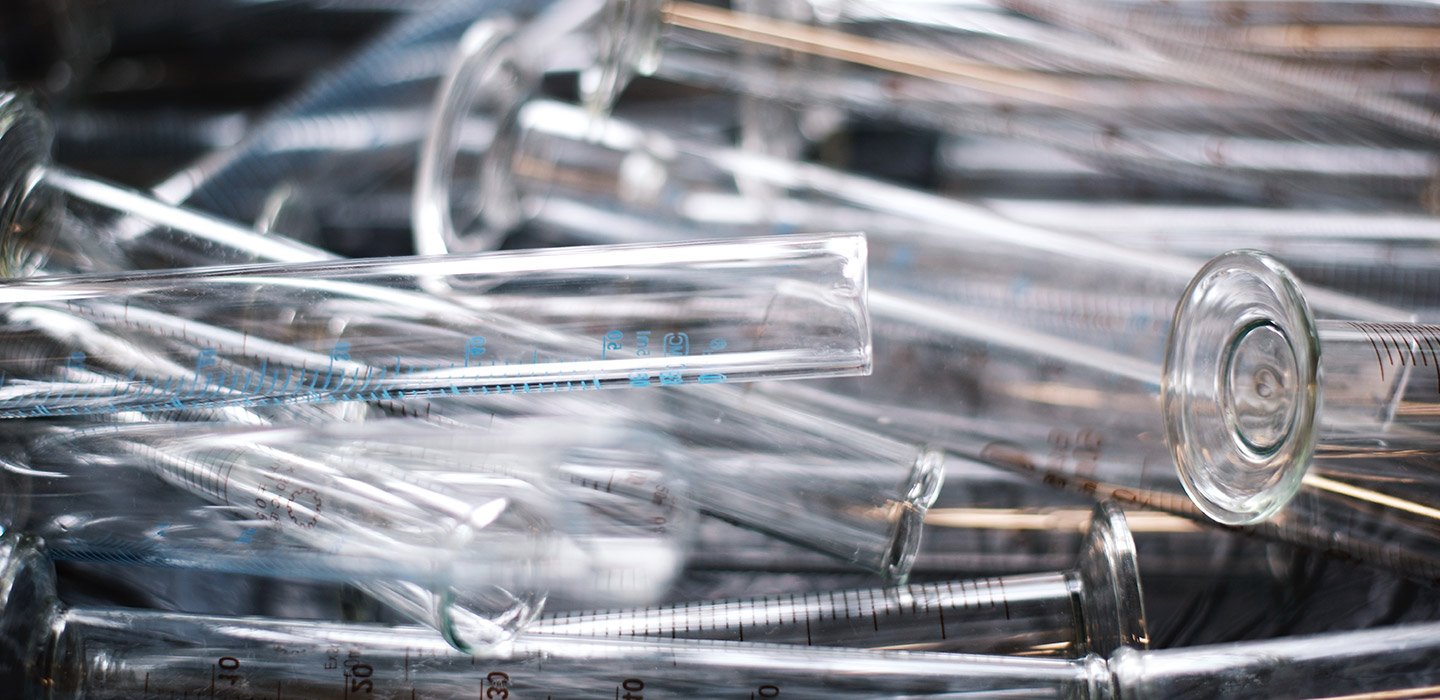Chemistry Research (UoA8)
Our interdisciplinary expertise and collaborations into the life sciences drives our research.
Who we are
Chemistry at Newcastle University is a thriving discipline of 36 academics with an ambitious vision for the future.
Our interdisciplinary expertise and collaborations drives our research. We often collaborate with disciplines such as the life sciences, materials science, engineering and physics.
This approach aligns with the values of the recently formed School of Natural and Environmental Sciences.
Our aim is to provide more collaborative research opportunities for Chemistry, by integrating it with:
- agriculture
- biology
- environmental Sciences
- geoscience
- marine science
This will help us to develop research which we can apply to high priority societal goals.
Research themes
We have high ambitions to become global leaders contributing to health and ageing and medicinal chemistry research. We also want to progress our standing in both chemical biology, and sustainability and energy.
Our researchers work within three main academic groups:
- medicinal chemistry and chemical biology
- functional molecules and materials
- synthesis, structure and reactivity
These academic groups develop five diverse research themes:
- medicinal chemistry
- chemical biology
- bioinspired materials
- energy materials and catalysis
- structure and dynamics
Research activities and projects
Major funding bodies support Medicinal Chemistry's drug discovery activities.
The Cancer Research UK Drug Discovery Programme (£5M) and Astex Drug Discovery Alliance (£3M) both contribute to ongoing work. This underpins their success with impact in this area.
Chemical Biology benefits from an ERC Consolidator award (£1.8M). This allows us to explore the applications of natural product-like cyclic peptides.
The Engineering and Physical Sciences Research Council funded the creation of The North East Centre for Energy Materials (£1.8M).
- Royal Society University Research Fellowships
- UKRI Future Leaders Fellowships
- ERC starting and Consolidator grants
Infrastructure
Our five main research themes interact with each other, other departments, research centres within the university, and external institutions. Our strategy focuses on catalysing impact. We achieve this through increased engagement with three of our Centres of Research Excellence (NUCoREs):
Our impact
Chemistry at Newcastle University delivers meaningful impact. Our real-world successes include:
- new medicines that revolutionise the treatment of ovarian cancer
- pioneering the ability to perform remote access crystallography experiments
- new technologies for energy capture and storage
- enzymes which promote deep cleaning
Our medicinal chemistry research discovered compounds underpinning the development of the drug Rucaparib. Since 2014, this has had approval for clinical use in ovarian cancer in the USA, Europe and the UK. This provided economic benefits to the value of £217M in 2019.
We can show sustained delivery of impact through drug discovery with two candidates. Both MDM2-p53 inhibitor (Astex Pharmaceuticals) and DNA-PK inhibitor (AstraZeneca) progressed to clinical trials. This represents an unrivalled level of success for an academic drug discovery group of this size.
Research in chemistry has also initiated four spin-out companies, including:
- NewChem (founded 2002; sales exceed £3M.)
- BiBerChem (founded 2017)
- Indicatrix Crystallography Ltd. (founded 2020)
- NunaBio Ltd. (founded 2021)
Research has also led to the discovery of naturally occurring marine enzymes. Proctor & Gamble, one of our key partners, has incorporated these enzymes into Ariel washing powder.
Our partners
The estate has received £2.5M investment during the REF2021 period reflecting strong growth. Chemistry at Newcastle University benefits from:
- Helix venture, NU’s £350 million flagship project
- £58 million Urban Sciences building, which considers energy research in an urban setting.
- £2 million Drummond Building OnePlanet facility including shared earth sciences resources.
- The International Centre for Life, a joint venture with the NHS, which includes the Biosphere (90,000 sq. ft of state-of-the-art laboratories) on the Helix site
Culture and values
We focus our research culture on four main pillars:
- openness
- multi-disciplinarity
- collaboration
- creativity
We follow the Researcher Development Concordat, of which NU became a signatory in 2019.
We encourage focus on the collective performance rather than individual. We achieve this through the process of annual group performance development reviews.
They seek to optimise the performance of the group across all relevant areas.
Chemistry has a strong commitment to EDI and holds an Athena Swan Bronze award. The University has staff groups for disabled, LGBT+ and minority ethnic staff.
Discovery of PARP inhibitors for cancer treatment – Rucaparib
Rucaparib (Rubraca™) is a poly (ADP-ribose) polymerase 1 (PARP1) inhibitor used to treat advanced ovarian cancer, a previously untreatable disease. The drug was discovered by Newcastle medicinal chemists with Agouron pharmaceuticals. It approved for use in the USA (2016) and Europe (2018). Rubraca has treated >9,000 patients and has generated worldwide sales of >$375M to date.
It is distributed free of charge under the Rubraca Patient Assistance Program (USA). It is available through the Cancer Drugs Fund (UK). Rubraca has given significant economic benefit to Clovis Oncology. This includes the employment of ~400 people. Two other licenced PARP drugs – niraparib and veliparib with $400M sales – have structures based on Newcastle chemistry.
Discovery of MDM2-p53 inhibitor (ASTX295) for cancer treatment
ASTX295 is a new anticancer drug that inhibits the MDM2-p53 protein-protein interaction. It was discovered by Newcastle in collaboration with Astex Pharmaceuticals. ASTX295 is currently in Phase I/II clinical trials [ClinicalTrials.gov Identifier: NCT03975387]. To date, has been used to treat 135 patients.
ASTX295 is designed to benefit patients with wild-type p53+ve tumours (~50% of all cases). It is used avoid side-effects seen in trials of competitor MDM2 inhibitor drugs. Around 20% of all tumours have elevated levels of MDM2 and will be sensitive to MDM2 inhibitors, eg:
- osteosarcoma (550 cases/pa UK)
- acute myelogenous leukaemia (3200 cases/pa UK).
The total outsourced development expenditure to date is £12.5M. This represents a significant fraction of Astex’s drug development investment for the REF period. Milestone payments of £587K have been made to Cancer Research UK (CRUK) via revenue sharing agreements.
